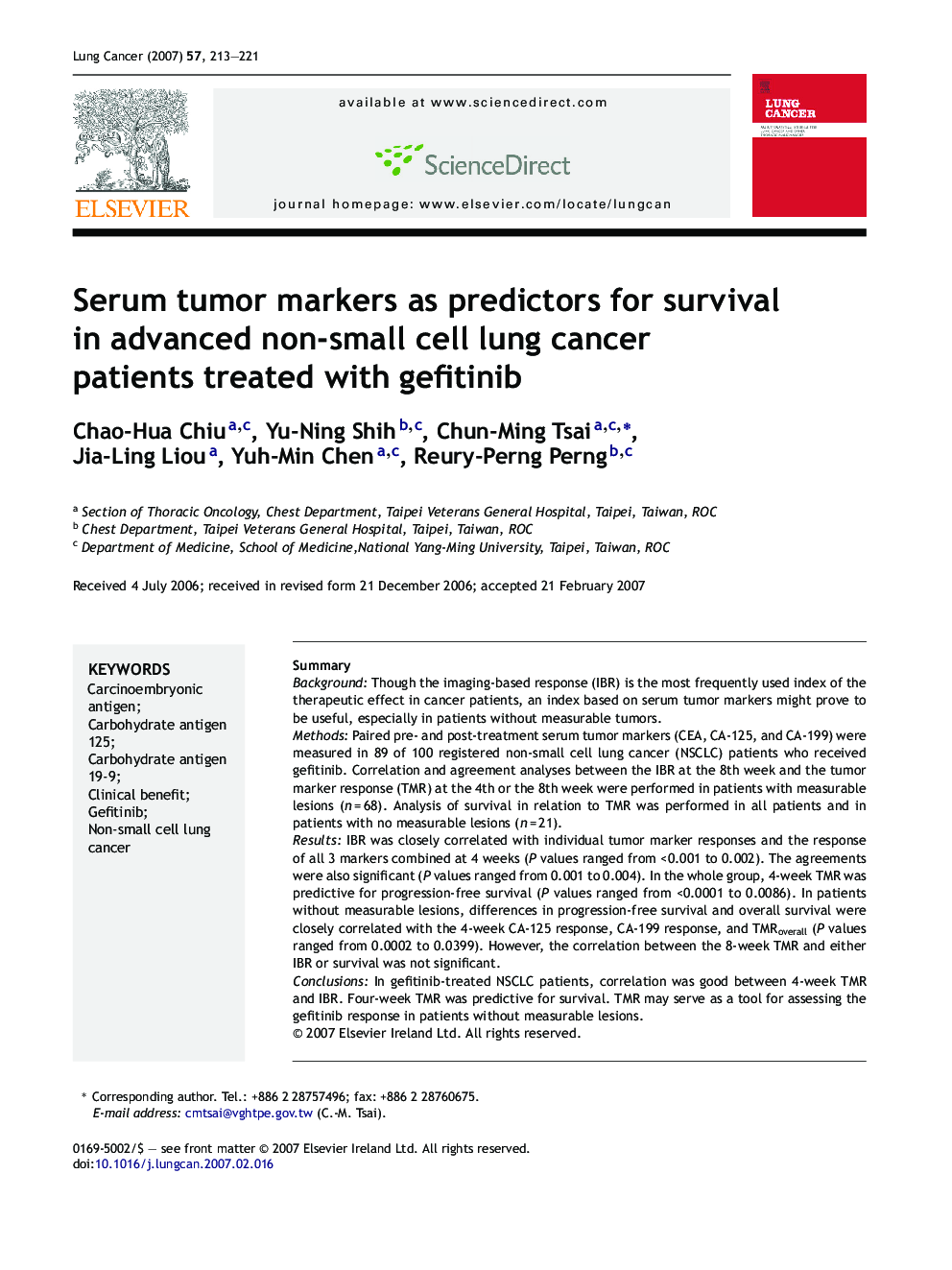| Article ID | Journal | Published Year | Pages | File Type |
|---|---|---|---|---|
| 2144181 | Lung Cancer | 2007 | 9 Pages |
SummaryBackgroundThough the imaging-based response (IBR) is the most frequently used index of the therapeutic effect in cancer patients, an index based on serum tumor markers might prove to be useful, especially in patients without measurable tumors.MethodsPaired pre- and post-treatment serum tumor markers (CEA, CA-125, and CA-199) were measured in 89 of 100 registered non-small cell lung cancer (NSCLC) patients who received gefitinib. Correlation and agreement analyses between the IBR at the 8th week and the tumor marker response (TMR) at the 4th or the 8th week were performed in patients with measurable lesions (n = 68). Analysis of survival in relation to TMR was performed in all patients and in patients with no measurable lesions (n = 21).ResultsIBR was closely correlated with individual tumor marker responses and the response of all 3 markers combined at 4 weeks (P values ranged from <0.001 to 0.002). The agreements were also significant (P values ranged from 0.001 to 0.004). In the whole group, 4-week TMR was predictive for progression-free survival (P values ranged from <0.0001 to 0.0086). In patients without measurable lesions, differences in progression-free survival and overall survival were closely correlated with the 4-week CA-125 response, CA-199 response, and TMRoverall (P values ranged from 0.0002 to 0.0399). However, the correlation between the 8-week TMR and either IBR or survival was not significant.ConclusionsIn gefitinib-treated NSCLC patients, correlation was good between 4-week TMR and IBR. Four-week TMR was predictive for survival. TMR may serve as a tool for assessing the gefitinib response in patients without measurable lesions.
